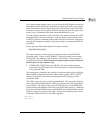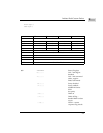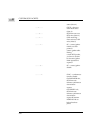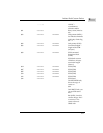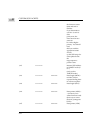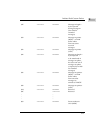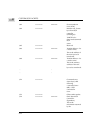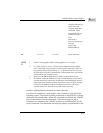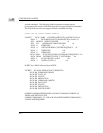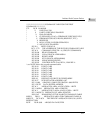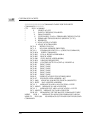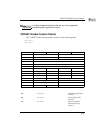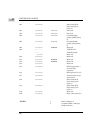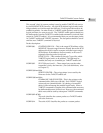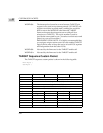
Initiator Role Custom Packet
2-15
2
Example: Sending linked commands to a disk controller
You intend to implement a read-modify-write function for your particular
operating system. The benefit of linking commands on the SCSI bus is a better
utilization of bus bandwidth. When two commands are linked, the TARGET
does not disconnect between commands. After the message-in phase
completes one command, the TARGET switches to command phase for the
second command. The arbitration and selection phases are eliminated for the
controller following a
check status and
a request sense data
command. Valid
information if bit 14
(additional status)
is set.
This block is
firmware private area
and only
used on the
INITIATOR role.
.
.
.
.
$9E xxxxxxxx xxxxxxxx Sense data block
NOTE
S:
1. Points to scatter/gather table if scatter/gather bit = 1 in byte 0.
2. If = 0 and if status is "check", SCSI firmware interprets returned SCSI
status, and sends a request sense command to the controller; if status is =
busy, infinite retries are performed. If = 1, SCSI firmware does not read
the SCSI status from the command table, and returned status word in the
packet reflects only firmware status.
3. Must be 0. MVME147 SCSI firmware ONLY supports SCSI devices.
4. In TARGET mode, the CDBs is received from the SCSI bus and it will be
returned to the user without any modification with CDB length. When a
target LUN is not enabled or when ’target device reset’ or ’abort’ message
is received, the CDB received by the target role firmware will not be
returned to the user. Instead, a error code will be returned.



